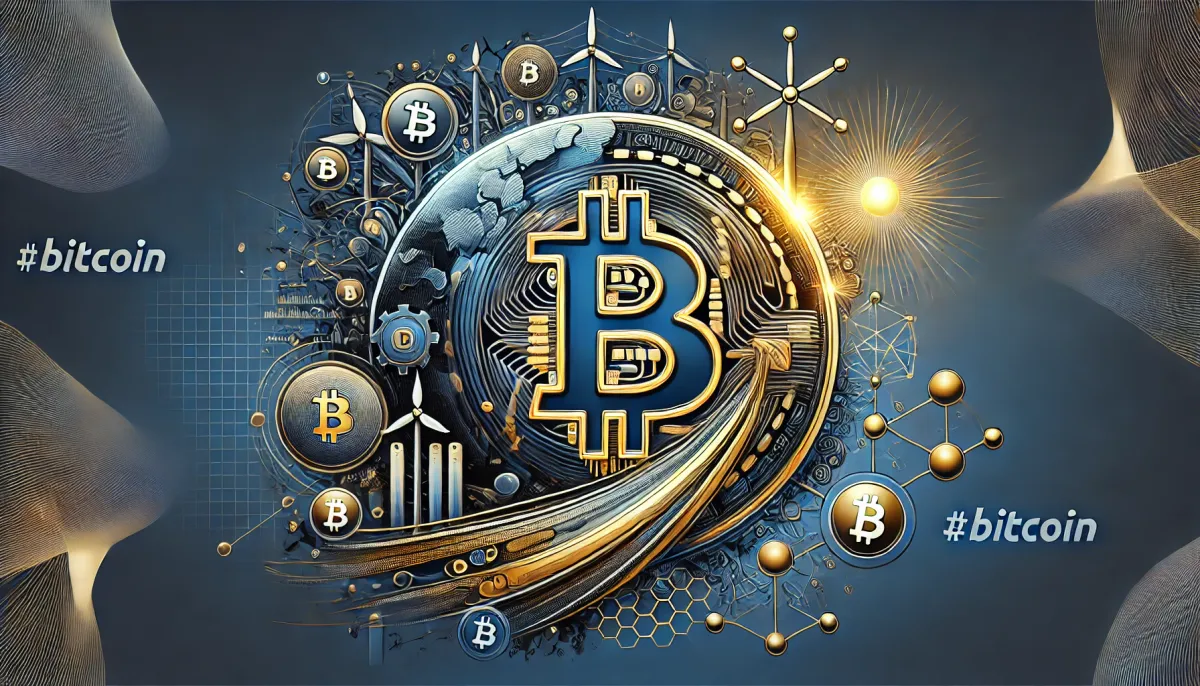19 Benefits of Bitcoin That Most People Have Never Heard About
In the September 12, 2024 episode of The Bitcoin Layer, Nik Bhatia lays out 19 overlooked benefits of Bitcoin, focusing on its far-reaching human impact beyond financial speculation.

Short Takes
My 'short take' summaries focus on the content of podcast episodes; they do not reflect my own views. If you have comments about this short take note, please leave a comment below (requires signing up for a free blog subscription). Note that some of the podcasts I summarize are likely sponsored episodes: don't trust, verify, if the information you are looking for is to be used for decision-making.
Summary
In the September 12, 2024 episode of The Bitcoin Layer, Nik Bhatia outlines 19 lesser-known benefits of Bitcoin, emphasizing its real-world impact in areas such as refugee financial mobility, hyperinflation resistance, and sustainable energy development. By highlighting Bitcoin’s role in financial inclusion, environmental sustainability, and technological advancement, the discussion provides a comprehensive overview of Bitcoin’s potential beyond its use as a speculative asset.
Take-Home Messages
- Bitcoin empowers refugees to safely transport wealth across borders, bypassing physical and financial restrictions in crisis situations.
- Bitcoin serves as an effective hedge against hyperinflation in developing countries, offering citizens a stable store of value.
- The Lightning Network is expanding Bitcoin’s everyday use, enabling low-cost, fast transactions for remittances and small payments.
- Bitcoin mining is driving sustainable energy initiatives, particularly in remote regions where it helps utilize stranded energy sources.
- Bitcoin is a tool for global financial inclusion, offering banking alternatives to over two billion unbanked people worldwide.
Overview
Nik Bhatia first emphasizes how Bitcoin enables refugees to transport their wealth securely across borders, providing a powerful tool for those fleeing conflict or oppressive regimes. The ability to store and transfer Bitcoin digitally, without reliance on physical assets, is demonstrated through real-world examples of refugees using Bitcoin to escape war zones with their savings intact.
Bhatia then moves on to Bitcoin’s growing relevance in hyperinflationary economies, especially in Africa. Bitcoin is increasingly used as a store of value in regions where local currencies are rapidly devaluing. Additionally, the Lightning Network has made Bitcoin more practical for everyday use, allowing for low-cost, fast transactions, which are particularly useful in remittance markets like El Salvador.
Bitcoin’s environmental and energy-related benefits are a central theme in the latter half of the podcast. Bitcoin mining in remote African villages is helping provide electricity through the utilization of stranded energy sources, creating a win-win scenario where both miners and local communities benefit. Bhatia underscores how Bitcoin mining could become one of the most sustainably powered industries in the world, positioning it as a key player in renewable energy initiatives.
Broadcast Highlights
- Refugee financial mobility: Bitcoin provides a secure way for refugees to transport wealth across borders.
- Hyperinflation hedge: Bitcoin’s adoption in hyperinflationary regions offers citizens a stable store of value.
- Lightning Network expansion: Bitcoin transactions are becoming more accessible and affordable through the Lightning Network.
- Bitcoin for remittances: Bitcoin reduces the costs and delays associated with traditional remittance systems.
- Stranded energy for mining: Bitcoin mining utilizes previously untapped energy sources in remote regions.
- Sustainable mining practices: Bitcoin mining relies heavily on renewable energy, making it one of the most sustainable industries.
- Women’s financial inclusion: Bitcoin empowers women in oppressive regimes by giving them access to financial tools without needing a bank.
- Decolonization via Bitcoin: Bitcoin adoption in Africa challenges foreign monetary control, particularly through the CFA.
- Conservation funding through Bitcoin: Bitcoin mining supports conservation efforts in Africa’s national parks.
- Financial inclusion: Bitcoin offers banking alternatives to the world’s unbanked populations.
Implications
Bitcoin’s ability to empower refugees, mitigate hyperinflation, and drive financial inclusion could have far-reaching policy and societal impacts. Governments may need to address Bitcoin’s role in providing financial autonomy to citizens, particularly in politically unstable regions. Additionally, as Bitcoin adoption increases in countries facing hyperinflation, there is a strong case for policymakers to explore how Bitcoin can serve as a stabilizing force in their economies.
From an environmental perspective, Bitcoin mining’s reliance on stranded and renewable energy sources presents a major opportunity for sustainable energy development. If successful, Bitcoin could play a pivotal role in accelerating the renewable energy transition, particularly in developing nations with limited access to electricity. However, Bitcoin’s energy consumption will continue to draw scrutiny, requiring ongoing innovation to reduce its environmental impact.
Future Outlook
Bitcoin may play an increasing role in both global financial systems and renewable energy initiatives. The Lightning Network will likely continue to expand, making Bitcoin more accessible for everyday transactions. Additionally, Bitcoin’s integration into remittance markets and its adoption in hyperinflationary regions could accelerate as more individuals seek alternatives to traditional financial systems. For the energy sector, Bitcoin mining could continue driving investment in renewable energy, particularly in developing nations, where stranded energy remains untapped.
Broader Implications
Financial Inclusion and Empowerment
Bitcoin offers secure financial tools for refugees and individuals in politically unstable regions, challenging traditional banking systems. This could force governments to reevaluate monetary policies and expand access to financial services.
Economic Stability in Hyperinflationary Regions
Bitcoin’s use in hyperinflationary economies provides a stable store of value, mitigating the effects of currency devaluation. Its adoption could lead other nations to explore Bitcoin as a tool to counter inflationary pressures.
Technological Innovations in Transaction Systems
The Lightning Network’s growth enables faster, cheaper Bitcoin transactions, making it a competitive alternative to traditional payment systems. This could drive further investment in Bitcoin infrastructure and improve scalability.
Sustainable Energy Development
Bitcoin mining’s reliance on renewable energy can drive sustainable energy projects, especially in regions with untapped resources. Continued innovation is needed to address environmental concerns and enhance mining efficiency.
Geopolitical and Monetary Shifts
Bitcoin’s adoption in developing regions challenges foreign monetary dominance, offering financial autonomy to nations like those in Africa. This could reshape geopolitical dynamics, leading to resistance from global powers seeking to maintain control.



Comments ()